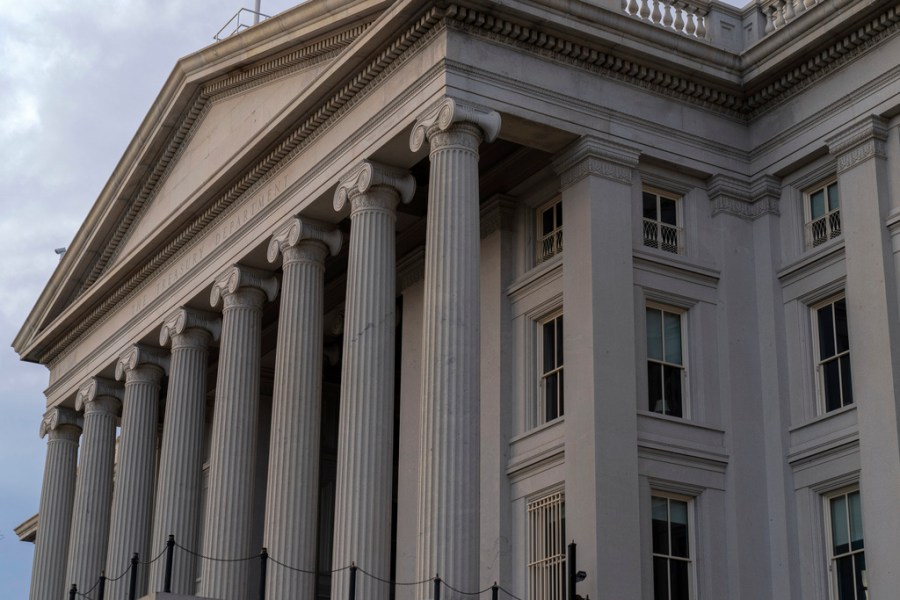
President Trump has issued an executive order instructing the heads of certain agencies to “develop a plan for the establishment of a sovereign wealth fund.” Is that possible, and if so, is it a good idea?
A sovereign wealth fund (SWF) — also called a “savings fund” — is a government-owned and managed vehicle “designed to be a nest egg, allowing current money to be deployed in a way that benefits future generations,” according to U.S. News and World Reports. Internationally, there are more than 100 SWFs, often funded by the sale of a country’s natural resources, such as oil and natural gas, or when the government has excess funds.
Norway has the largest SWF, with $1.7 trillion, and Hong Kong is 10th with $514 billion. In addition, several U.S. states have a version of an SWF, again, often funded by royalties from fossil fuel production.
But there are several reasons why establishing a U.S. fund is a bad idea. Here are four of them.
The U.S. government has no excess “wealth.” A sovereign wealth fund is a repository for savings. However, the federal government has no savings. Indeed, it has annual budget deficits ($1.8 trillion in 2024) and a whole lot of debt ($36.5 trillion).
Under current budget and spending patterns, the federal government would have to borrow money at elevated interest rates to make deposits to a sovereign wealth fund. That makes zero sense.
What about the Social Security Trust Fund? That’s money workers have paid into Social Security through payroll taxes that hasn’t been paid out to recipients. With $2.7 trillion on the books, could that account be turned into an SWF?
The problem is the government has borrowed all of that money and spent it, issuing itself IOUs. If the government wants to redeem those IOUs, it has to borrow the money to do so.
What about using oil and gas royalties like other SWFs? In the 10 years between 2012-2022, the government received $74 billion in royalties from oil and gas produced by companies on federal leases, according to the Government Accountability Office. Most of that money was distributed to the states. But, again, it makes little sense to put that money in an SWF while the government is borrowing nearly $2 trillion to fund its spending. Better to use those funds to reduce the annual deficit.
Of course, it’s at least possible the Department of Government Efficiency (DOGE) and Republicans will cut federal spending enough that the government shows a budget surplus in the future. But that will be a hard goal to reach. In the last 55 years the government has had a budget surplus in only four of them: 1998-2001. And even if there were a surplus, it would be better to apply that money to paying down the nation’s enormous debt.
Investments would be politically driven. If elected officials were managing SWF investments, they would be driven partly, if not totally, by political considerations rather than the maximization of returns.
For example, if progressive Democrats were managing the funds, they might avoid investing in fossil fuels, gun manufacturers, Israeli companies or companies that didn’t demonstrate sufficient diversity, equity and inclusion (DEI) efforts — regardless of how profitable those companies were.
But couldn’t the SWF be run by an independent board of financial experts? Yes, but Trump is currently trying to bring all independent agencies under his direct control, and that would certainly include the sovereign wealth fund.
Investments could skew the market. If a sizable SWF were created, large moves could skew the market up or down. For example, if an SWF were to put billions of dollars into a stock — as Trump has suggested with TikTok — it could dramatically increase the value of that stock, but only because demand for the stock might be greater than supply. In fact, it’s not hard to imagine wealthy investors lobbying SWF officials to invest in companies the investors own.
On the other hand, pulling billions of dollars out of a stock might arbitrarily push the market, or a company, down if more shares were available than investors were willing to buy.
Excess money should be returned to taxpayers. If Trump’s policies were to create a budget surplus, why put that surplus money in a sovereign wealth fund? The money came from taxpayers in the first place. It should be returned to taxpayers, preferably by lowering taxes.
A sovereign wealth fund is just one more way for the government to soak up money that belongs to taxpayers. If Trump’s goal is to increase investment, then Americans should be investing that money in ways they, not the government, think best.
Merrill Matthews is a public policy and political analyst and the co-author of “On the Edge: America Faces the Entitlements Cliff.” Follow him on X@MerrillMatthews.












